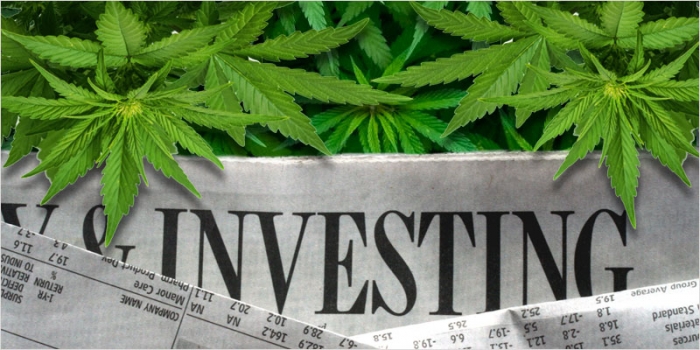You are here
Home 🌿 Marijuana Business News 🌿 Aurora Cannabis is chasing billion-dollar deals. Do investors benefit? 🌿Aurora Cannabis is chasing billion-dollar deals. Do investors benefit?

During a news conference to unveil his signature deal, the chief executive of Aurora Cannabis Inc. was hailed as a “pioneer and visionary” by his executive team.
Yet, when he was asked a simple question by an analyst, to explain which metrics he used to value his $3.2-billion takeover of MedReleaf Corp., Terry Booth got a little tripped up.
“Metrics ...” he said, trailing off. After an awkward silence, he conjured up half an answer. “That’s our secret.”
The exchange was an emblem for an entire sector. Canada’s cannabis companies have seen their valuations soar over the past six months as legalization nears, but most are still losing money – and their revenue projections are all over the map. It is nearly impossible to know whether these companies will live up to their hype.
Until recently, this was mostly a problem for investors. Lately, though, executive teams have also wrestled with it, because these companies are starting to buy one another at an astonishing pace. As seen so many times in the junior mining and energy sectors, we have entered the consolidation phase, in which companies scramble for scale, hoping to be one of the few standing when the music stops.
So far, Aurora has been the most aggressive buyer, with two billion-dollar deals this year. Investors didn’t fret too much when it bought CanniMed Therapeutics Inc. for $1.2-billion in January, even though the target’s valuation was hard to justify, but now that Mr. Booth is leaping at a deal almost three times that size, they ought to ask how any prospective takeover target is valued in a sector that’s so bloated.
When pressed on this front, Mr. Booth said he couldn’t divulge much because the valuation technique was his “secret sauce.” And when chief commercial officer Cam Battley was asked for cost savings from the merger, he didn’t have much to say, either. “We don’t have an exact calculation of the synergies,” he said. All he could offer was that the company’s chief financial officer and his team did the work, “and they all came out of that exercise with big smiles.”
Aurora’s financial adviser, BMO Nesbitt Burns, declined to comment for this story.
Like so many junior commodity companies before it, Aurora would much rather sell investors a story. Instead of worrying about recent revenues and profit, the company wants everyone to know how big it will be when merged with MedReleaf. The two will have a combined market value of $7.4-billion. As well, Aurora emphasized the merged company’s production capacity, which could reach 570,000 kilograms of cannabis a year in a perfect scenario.
The company also has a new narrative to sell. Because Canada’s prospects are limited by its population, Aurora is now out for global domination – and the merger is supposed to provide extra production, allowing Aurora to sell more marijuana abroad, particularly in Europe. The growth, you see, never ends.
A quick peek at Aurora’s financials will be a bit of a buzzkill for anyone who buys this hype. The company reported its latest results last week and it lost $10-million in operating cash flow during the quarter – “the worst performance of all companies under coverage,” GMP Securities analyst Martin Landry wrote in a note to clients. Yet Aurora traded at 28 times his projections for earnings before interest, taxes, depreciation and amortization – a 60-per-cent premium relative to its peers.
As for the European growth story, it’s still in its infancy. Germany is the key market because of its size and recent acceptance of medical marijuana, but the country’s courts keep dragging out the approval process for new producers.
No doubt the proposed MedReleaf merger has real merits, particularly because the target is known for being one of the more respected players in the sector, with a solid management team and hardly any debt. (Although there were no guarantees that MedReleaf’s team will stick around if it closes.)
Aurora is also paying for MedReleaf with its inflated paper – that is, its overvalued shares. In other words, it isn’t using leverage.
But, Aurora is paying a 34-per-cent premium, after already coughing up a healthy premium for CanniMed. It also said Monday that it is on the hunt for even more deals.
The more premiums Aurora pays, the more existing shareholders will be diluted. At some point, they will start to wonder what they own, and how much of it – which will be all the more troubling if the production and profit promises aren’t met for some time.
420 Intel is Your Source for Marijuana News
420 Intel Canada is your leading news source for the Canadian cannabis industry. Get the latest updates on Canadian cannabis stocks and developments on how Canada continues to be a major player in the worldwide recreational and medical cannabis industry.
420 Intel Canada is the Canadian Industry news outlet that will keep you updated on how these Canadian developments in recreational and medical marijuana will impact the country and the world. Our commitment is to bring you the most important cannabis news stories from across Canada every day of the week.
Marijuana industry news is a constant endeavor with new developments each day. For marijuana news across the True North, 420 Intel Canada promises to bring you quality, Canadian, cannabis industry news.
You can get 420 Intel news delivered directly to your inbox by signing up for our daily marijuana news, ensuring you’re always kept up to date on the ever-changing cannabis industry. To stay even better informed about marijuana legalization news follow us on Twitter, Facebook and LinkedIn.




